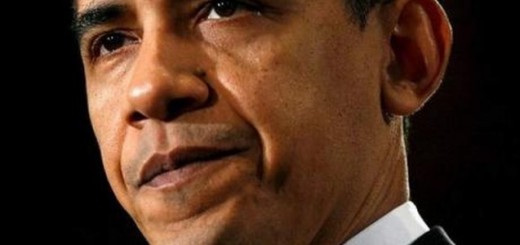Those working-at-the-car-wash blues.
At midnight Wednesday, base labor in America became worth 70 cents per hour more than it had been just one minute before. Just like that, an employee making $5.85 an hour began making $6.55 an hour, the new federal minimum wage. That’s an increase of twelve percent.
Wow! Isn’t that great? If you have employees earning the minimum wage, they’re worth more today than they were when you went to work on Wednesday. A twelve percent gain in productivity from those employees couldn’t come at a better time.
What gain in productivity?
Well, the gain in productivity that would certainly be the precursor to a significant increase in compensation. This is America. You don’t just get a raise. You have to earn it.
No, not necessarily.
The federal minimum wage has little to do with the market for labor. The federal minimum wage was born of the Fair Labor Standards Act of 1938. Minimum wage was political then. It’s political now.
Franklin Roosevelt promoted the Fair Labor Standards Act as a way of getting around the fact that it was impossible to unionize the entire country without running afoul of either the law or deeply held anti-union sentiment in many states. It was a purely political move. Trying to shove unionization down the throats of states such as Texas would have touched off a firestorm. The Fair Labor Standards Act was an end-around for the benefit of the labor unions that supported FDR.
For 70 years we’ve had minimum wage and it’s not going away. But it is important to understand that minimum wage is not set by those engaged in the buying and selling of labor. It is not set by an employer’s offer of work at a specified wage and a worker’s concurrent acceptance. Minimum wage is set by Congress. The same Congress that specifically exempts itself from most of the provisions of the Fair Labor Standards Act that established minimum wage in the first place.
And every time Congress raises the minimum wage, we get the news stories about how inadequate the new wage is. Just this past Wednesday, Christopher Rugaber of the Associated Press wrote of Walter Jasper, a car wash worker in Nashville, Tennessee.
“It [the increase in minimum wage] will help out a little,” says Jasper, who with his fiancée supports a family of seven. “I’d like to be on a job where I can at least get a car,” he says.
Well, good gosh, $262 a week isn’t going to get Mr. Jasper a car. Not if he wants to eat, feed the five kids and come in out of the rain. Neither will the $290 a week when minimum wage goes up again, this time to $7.25 an hour, 363 days from now.
So let’s raise the minimum wage to $25 an hour. That’s a thousand dollars a week or $52,000 a year. Out of that $1,000 in gross pay every week, Mr. Jasper would net about $780 or $3,380 a month. Out of that he could surely afford the rent in a decent place and a serviceable car and food for himself, his fiancée and the five kids (that obviously came from some union somewhere that is apparently not connected to an extant marriage).
But, Paul, I’m not sure what Mr. Jasper does at the car wash but it’s probably not worth $52K a year. If you raise the wage too high, instead of minimum wage he’ll get no wage.
Well that’s true and that’s the point. The car wash is going to try to get the work Mr. Jasper is doing done for as little as possible. Possessed of the knowledge that they would have to pay $5.85 an hour for the job Mr. Jasper holds, they offered employment and Mr. Jasper took it. If there had been no takers at that price, the car wash would have had to decide to either raise the wage offering or eliminate the position. And thus, with each increase in minimum wage, Mr. Jasper’s employment is further jeopardized.
Please understand that I’m not putting Mr. Jasper down. The fact that he has lived long enough to produce and/or have to feed five children and can still only command minimally compensated employment speaks to a very serious problem.
But thinking that Congress can solve the problems faced by the Walter Jaspers of the world by setting the base price of labor by fiat is delusional.
Education and experience are the essential variables in selling one’s labor to employers. Education can be obtained in America by just about anyone willing to put forth the effort. Experience is obtained by starting at the bottom of the ladder and working one’s way up.
Each increase in minimum wage risks raising the bottom rung of that ladder out of the reach of Walter Jasper.









Dear Paul,
I listen to you guys every morning and typically agree with you to a tee. I own a small carpet cleaning company in Tyler and I have to say that minimum wage increases affects us all not just the employers and employees.
Even though I have never paid my technicians minimum wage, you can be rest assured that they will come to me asking for an increase due to the new rules. Some may get an increase in salary some may not. Pay adjustments sure as hell will not be based of a new government mandate.
This of course will be my decision based on their performance, which is the way it should be. I think you should have touched more on the fact that this increase is going to raise all our costs in an economy where prices for essentials are beginning to get out of hand.
The next time you pay $10.00 for a hamburger and coke and the drive through, be sure to thank Uncle Sam.
Best regards,
Ash Downing
Andrews Carpet Cleaning
don’t increase the minimum wage, abolish it; it’s in place only to support those who aren’t worth it. those disagreeing may pay the subsidy themselves, after helping their new dependents out of the rain, and good luck to them.
smart employers will pay well those doing good work.
free markets work. socialism doesn’t.
It is amazing to me how many people do not seem to know what raising the mimimum wage does to our ecomony. It sounds good, but business does not win. Those who arbitraily receive an increase in pay may have or may not have deserved the automatic raise so graciously given by our government (ie: me and you). Now many of our small buisnesses have hard decisions to make. Can we keep the same staff and still make a decent profit or do we need to let someone go? …or do prices go up across-the-board.
The cost of living just went up for us all.